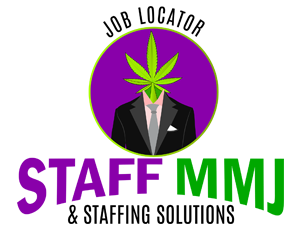When John Rathman applied for a budtender job in October, he had no idea it would almost a month after the interview to hear back from the hiring manager. After three weeks, a phone call came to invite him to his first interview. A second was scheduled within a day after his interview. Rathman was excited, especially after the employer sent him for fingerprinting and background checks.
Once he completed the background check, every thing went silent. The following week came, then another, and still another week and nothing. Rathman was getting anxious, and eagerly emailed the hiring manager after nearly four weeks had gone by since the initial interview.
“I’m checking in on the results of my background screening. Even if something bad showed up, I would like an update,” he wrote. Rathman added another line emphasizing a highlight of the interview, then signed off with regards. Within 24 hours, the hiring manager returned the email with an apology for the delayed response. There had been an issue on their end regarding the delivery of Rathman’s dispensary agent card. Rathman’s card arrived shortly thereafter and he began training last week.
Rathman was one of the lucky ones. He was hired by a medical marijuana dispensary and passed his background screening. Many applicants never hear back after submitting resumes. Most give up and pursue other positions or companies, or enter an entirely new industry.
Is there another way to follow up with employers? Here are a few options to get noticed when hiring managers aren’t keeping up with communications.
Stay Enthused!
There are many reasons why you may not have heard from the hiring manager. They may be awaiting reference call backs, or other details related to your application. Or they may simply be evaluating their needs. Sifting through applicants can be a tedious job. Even if the hiring manager is not pro-active in follow-ups, go ahead and email them up to three times over a two week period.
Keep a healthy balance of enthusiasm. It is important to refrain from being annoying or desperate in your attempts. “One time, an applicant sat in our lobby for eight hours waiting f0r the manager to follow-up on his resume,” an Arizona Natural Selections tells us. Needless to say, the applicant did not get the job. Think of it as a continuous stream of communication. You don’t ever want to look so desperate that you have no other options.
Say Thank You!
After the interview, be sure to send a thank you note to the hiring manager. (hint! Make sure to get the hiring manager’s information prior to exiting the interview). If you are working with a recruiter or staffing agency, make sure to include them on your correspondences so your efforts are not duplicated. Take it one step further by penning a handwritten note and drop it off with the hiring manager’s name on it. A handwritten note tells the hiring manager you are willing to go the extra step and are capable of making a lasting impact.
Communicate!
At the very minimum, a cheerful email can diminish job search anxieties by helping you reflect on the positives of your interview. If you haven’t heard back after the thank you, now is the time to get more assertive. It is perfectly acceptable to follow up more than once. Some managers prefer phone follow-ups, while others prefer emails. If you are unsure, it is helpful to ask at the time of the interview. We prefer emails over phone calls for two reasons. One, an unsolicited phone call can catch a company off guard. If you catch a hiring manager at their busy time, you may actually do more harm than good. Two, phone calls are difficult to pull-in information. With email, the manager is able to access your resume and can delegate the communication at a time that is convenient for them. Unfortunately, it can be difficult to get follow-ups through email. Many times, the reader will see the message and get busy or forget to respond.
If you are socially savvy, it is okay to contact the company on Facebook, LinkedIn, and even Twitter. A lot of the time, you’ll reach someone who is capable of helping you get an answer. Keep in mind engaging on social media can be a tricky way to contact others. Keep it simple and don’t send the wrong signal.
Whichever method you use, stick with that method. Using every communication method is a sure way to scare off anyone!
Highlight/Recap
One of the things Rathman did right was following up with a highlight from the interview. For example, if you and the interviewer discussed strategies for driving more customers through the door, this is a good opportunity to share a few examples of how you’ve achieved this at a previous job.
Stay Positive
Some applicants can do all the right things and still do not get a job offer. However, if you are communicating with the hiring manager, chances are better that you will at least get feedback outlining the decision process. Try not to get discouraged if you don’t hear back. Many hiring managers do not share why an applicant was rejected, out of concern for occupational discrimination cases. If you do get feedback, try to take it with a positive approach.
Getting rejected is never any fun, but it is important to stay upbeat in your search. Your resilience and desire to learn will carry you to the next opportunity.
[wysija_form id=”17″]
